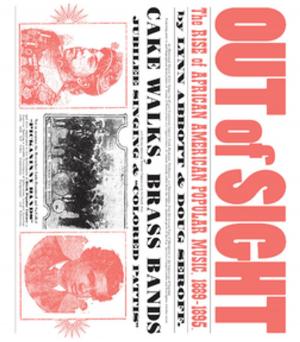Autobiographical Comics
Life Writing in Pictures
Nonfiction, Social & Cultural Studies, Social Science, Cultural Studies, Popular Culture, Fiction & Literature, Literary Theory & Criticism| Author: | Elisabeth El Refaie | ISBN: | 9781617036149 |
| Publisher: | University Press of Mississippi | Publication: | October 24, 2012 |
| Imprint: | University Press of Mississippi | Language: | English |
| Author: | Elisabeth El Refaie |
| ISBN: | 9781617036149 |
| Publisher: | University Press of Mississippi |
| Publication: | October 24, 2012 |
| Imprint: | University Press of Mississippi |
| Language: | English |
A troubled childhood in Iran. Living with a disability. Grieving for a dead child. Over the last forty years the comic book has become an increasingly popular way of telling personal stories of considerable complexity and depth.
In Autobiographical Comics: Life Writing in Pictures, Elisabeth El Refaie offers a long overdue assessment of the key conventions, formal properties, and narrative patterns of this fascinating genre. The book considers eighty-five works of North American and European provenance, works that cover a broad range of subject matters and employ many different artistic styles.
Drawing on concepts from several disciplinary fields--including semiotics, literary and narrative theory, art history, and psychology--El Refaie shows that the traditions and formal features of comics provide new possibilities for autobiographical storytelling. For example, the requirement to produce multiple drawn versions of one's self necessarily involves an intense engagement with physical aspects of identity, as well as with the cultural models that underpin body image. The comics medium also offers memoirists unique ways of representing their experience of time, their memories of past events, and their hopes and dreams for the future. Furthermore, autobiographical comics creators are able to draw on the close association in contemporary Western culture between seeing and believing in order to persuade readers of the authentic nature of their stories.
A troubled childhood in Iran. Living with a disability. Grieving for a dead child. Over the last forty years the comic book has become an increasingly popular way of telling personal stories of considerable complexity and depth.
In Autobiographical Comics: Life Writing in Pictures, Elisabeth El Refaie offers a long overdue assessment of the key conventions, formal properties, and narrative patterns of this fascinating genre. The book considers eighty-five works of North American and European provenance, works that cover a broad range of subject matters and employ many different artistic styles.
Drawing on concepts from several disciplinary fields--including semiotics, literary and narrative theory, art history, and psychology--El Refaie shows that the traditions and formal features of comics provide new possibilities for autobiographical storytelling. For example, the requirement to produce multiple drawn versions of one's self necessarily involves an intense engagement with physical aspects of identity, as well as with the cultural models that underpin body image. The comics medium also offers memoirists unique ways of representing their experience of time, their memories of past events, and their hopes and dreams for the future. Furthermore, autobiographical comics creators are able to draw on the close association in contemporary Western culture between seeing and believing in order to persuade readers of the authentic nature of their stories.















